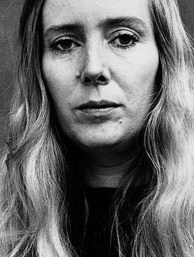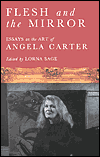Penelope Lively, Family Album – TLS
The image of the house in fiction is a familiar one. Henry James, famously, made a many-windowed house stand for the novel’s different ways of seeing. Others have used it to remind us of the novel’s constructedness and, therefore, its potential for dismantling – think of Jean Rhys undoing Bronte’s world until all that is left is a dreamed-up, “cardboard house” (a mere book). And there is the figure of the house-as-character, memorable in Tony Morrison’s Beloved, in which a house, taken over by the past, becomes “spiteful”, making it rock and moan.
In Family Album, Penelope Lively’s sixteenth novel, her house, though filled with the presence of the past, seems a less self-conscious affair, set on firmer ground, evoking the long continuity of English history. Slipping between the 1970s and the present, the story is contained between opening and closing chapters titled ‘Allersmead’, after the house, the name a clue to who rules its roost. Lively furnishes it conventionally with a bookish patriarch, Charles; a dutiful wife, the “Always smiling, Alison”; and another woman, an au pair (the modern day equivalent of a governess). Intellectual pursuits concerning family ritual and tradition keep Charles detached from turmoil in his own household; to suppress revolt he simply closes the study door. So it is his wife’s concoction, Alison’s mead of ‘natural’ mothering and clannishness, that the family, and its employee, must swallow.
Ingrid, the worker in question, lives with the couple as their progeny multiply, returning home to Norway unexpectedly just once. Apparently satisfied with a life in the wings, she intrudes only with sharp pronouncements on family relations that go oddly, often comically, unremarked upon. In a novel where much is made of the mystery of people (“My mother was unfathomable”; “your father is inscrutable”), Ingrid is the most “enigmatic”, assimilating herself to Alison’s insistent, incurious idea that reality outside the family is of little value and not really to be countenanced.
By the time all but one of the six children have flown the coop (it is Paul, the one most loved by his mother and derided by his father who fails to fully fledge), Charles has removed himself to such a degree that Ingrid is no longer the third wheel in the marriage. The partnership between the women becomes more significant, Ingrid tending a fertile garden and Alison selling her rather creepy conception of “Mothercraft” to bemused women dismissive of the ideology but keen on her cooking tips. Their feminised industry is necessitated by the falling sale of Charles’s increasingly esoteric-looking books, representing a victory of sorts for Alison’s hippyish version of the domestic goddess (there are nods to Nigella Lawson et al), indicating what a hold home-making has on the culture: how much easier it has become to sell recipes than ideas.
Lively began late as a writer, starting with children’s books, work she could fit around her own motherhood. But she’s been making up for it ever since with novels, stories, essays, autobiography and a work on landscape history: industry that has not gone unrecognised (there was a CBE in 2001). In Moon Tiger, her 1987 Booker winner, the heroine thinks, “[There is] no halting or diverting the foreordained. This is the story; these are the things that must happen.” Often set in some version of what she calls a “memory house”, retrospection features in much of Lively’s fiction and has proved productive. But the danger is that continual dredging of the past tends to predictability, the backwards glance dessicates those big human dramas of freedom and choice.
For an English writer, like many of her generation, born elsewhere (Lessing, Ballard), not leaving Egypt until she was twelve, it is odd she possesses so little feel for other-worldiness. Perhaps this relates to the very rooted brand of realism she writes, displayed in Family Album’s redolent particularity, in details like the heated-up left-over cottage pie. The children are treated in the same way, kitted out with precise identities and destinies: Gina, the rebel, becomes a foreign correspondent, Claire, a ballet dancer, Sandra a fashion journalist, Katie the student, Roger the doctor, and Paul, the family mess-up.
Against this rather forced individualism, the world beyond Allersmead appears rote: famine children in some unspecified place are “wide-eyed with stick limbs and swollen bellies”. The final chapter, a battery of emails regarding Charles’s funeral arrangements, and spilling, finally, the family secret (“Spot on, Clare – thanks for lifting the veil, busting the taboo, etc.”), feels tacked on, an awkward nod to the modern world. Lively, however is aware that the bourgeois insular English family she’s writing about is close to extinction. The novel ends with the house sold off, the children, slow to reproduce, dispersed across the world, the pull of geography now replacing that of history.
A version of this review appeared as ‘Domestic Goddess’ in the TLS, 7.8.2009.













